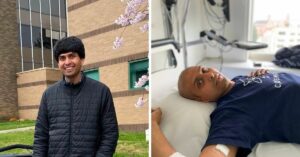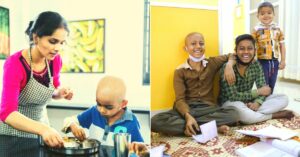‘I Fought Cancer as a 12-YO’: UP Man’s Digital Idea Connects Rural India to Doctors for Free
Sandeep Kumar from Uttar Pradesh started DigiSwasthya to help villagers access timely healthcare through teleconsultations with urban doctors. So far, he has catered to over 28,000 patients free of cost.
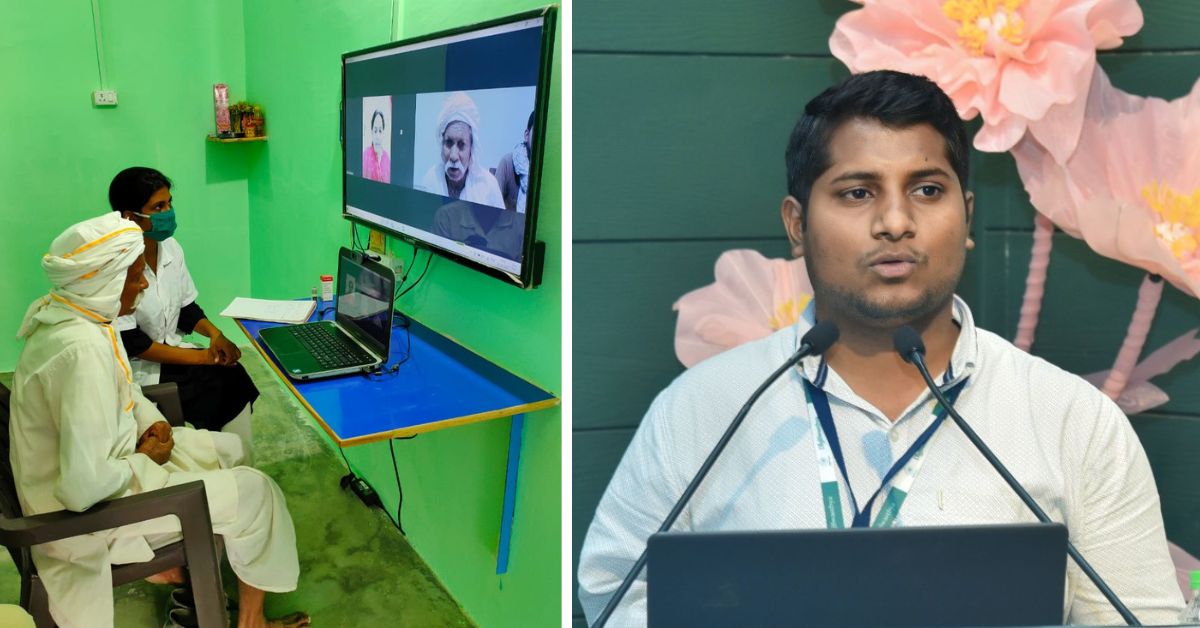
When one night, the pain became unbearable, Sandeep Kumar informed his parents about the swelling in his right hand. Distressed, his mother applied a paste of onion to his hand to relieve the pain. After eight months of home remedies and “treatment” from local quacks, Sandeep was diagnosed with bone cancer at 12.
“I could not move my hand, a lump had formed in my right humerus bone, and it kept increasing. For six to eight months, we kept running from one district hospital to another, but all in vain. There was no diagnosis,” recalls Sandeep in a conversation with The Better India.
Growing up in Kathaicha village in the Sant Kabir Nagar district of Uttar Pradesh, the lack of access to efficient healthcare meant that the family had to travel almost 40 km to Gorakhpur, the nearest city for specialised treatment.
“In 2007, when I went to Gorakhpur, a doctor advised for a biopsy. He informed us that I have bone cancer. He told us that my hand needs to be surgically removed, otherwise, there would be a risk to my life. We left for a hospital in Mumbai the very next day. After bone replacement surgery and 14 cycles of chemotherapies, I was completely cured, and regained movement of my hand,” adds the cancer survivor.
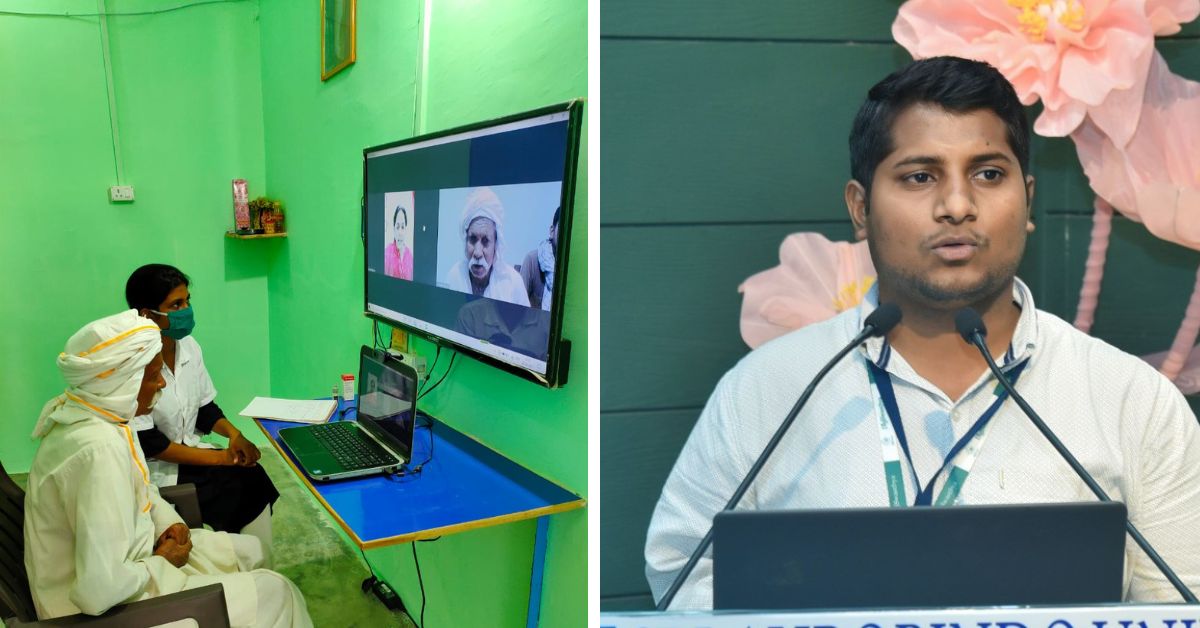
Son of a farmer, his father took loans and sold buffaloes and cows to get him treated. “The treatment cost us Rs 4.5 lakh. I got treated, but had I got diagnosed earlier, it would have saved us time. I had to discontinue my education for a year,” he recalls.
After witnessing and experiencing the helplessness of patients like him, Sandeep pledged to devote his life to helping rural residents access better healthcare and get early treatment.
Today, the 28-year-old runs a non-profit organisation called DigiSwasthya that makes healthcare services affordable and accessible for rural communities through teleconsultations. So far, he says that he has catered to more than 28,000 patients in rural parts of Uttar Pradesh, Bihar, and Maharashtra.
Mission to bridge the healthcare gap
After getting cured, Sandeep completed a certificate course on professional oncological caregiving at the Mumbai-based Tata Institute of Social Sciences (TISS) in 2015. He also completed a dual master’s in Social Work and Arts.
“My family wanted me to become an engineer but my vision had changed and I wanted to pursue the social work field,” he says.
Between 2015 and 2020, he worked in several cancer-related hospitals including TATA Memorial Hospital, Wadia Hospital, and KEM Hospital. “I would guide and support patients from rural remote areas in terms of accessing lodging and food,” he adds.
In 2020 when the COVID-19-induced lockdown was announced, Sandeep came back to his village. “Even after nearly 15 years, the healthcare situation in the village had not improved. I saw how patients did not get guidance at the right time and kept rushing and wandering in hospitals,” he recalls.
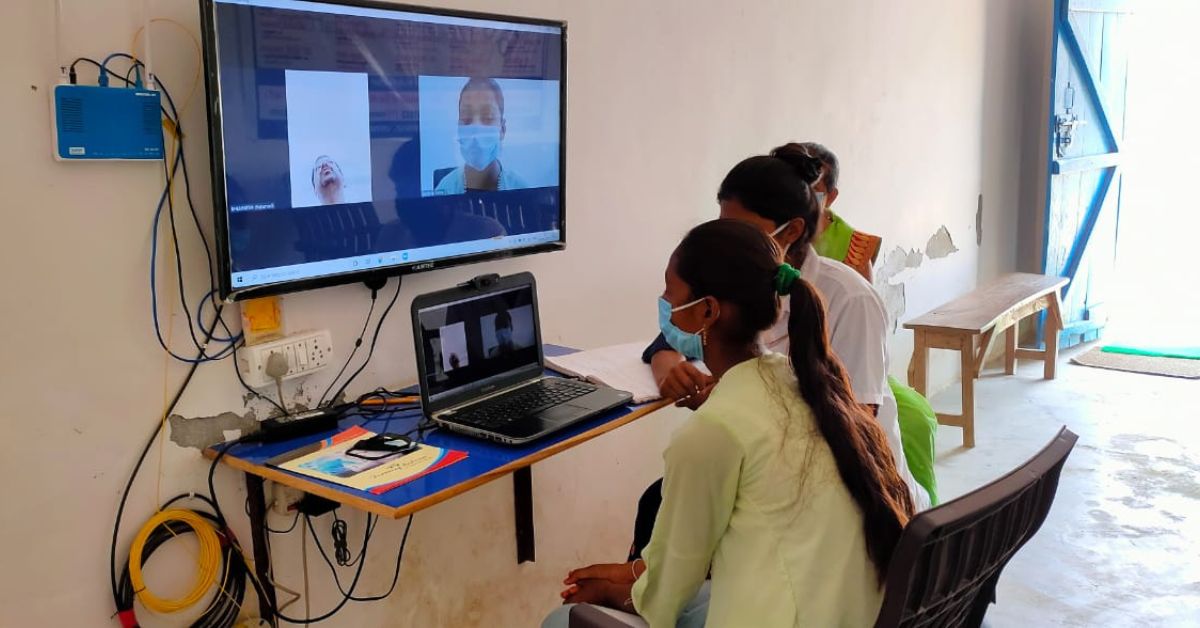
To address the gap, he started connecting rural residents with doctors in cities. “Initially, I started the work from my home. I got 18 people to get consultations from doctors at hospitals where I had worked,” he says.
Seeing a good response, Sandeep started organising camps and approaching gram panchayats to sensitise rural residents about teleconsultations. His quest made him invest his savings of Rs 4 lakh to set up a 200 sq ft teleconsultation centre in the district.
Today, Sandeep has set up five centres in Basti of UP, Muzaffarpur of Bihar, and in Palghar and Tekwadi districts of Maharashtra. He onboarded 137 healthcare professionals from renowned hospitals like AIIMS and Apollo from cities such as Ahmedabad, Pune, Lucknow, Mumbai, Delhi, Bengaluru, Secunderabad, and Gorakhpur.
“Fee should not be a constraint”
Through the teleconsultation centres, Sandeep connects rural patients with urban doctors. What’s unique about these centres is that it provides medical consultation free of cost.
“We do not charge a single penny from patients because when we charge an amount, we limit our purpose,” says Sandeep, who is managing the expenses of the e-clinics with donations and grants.
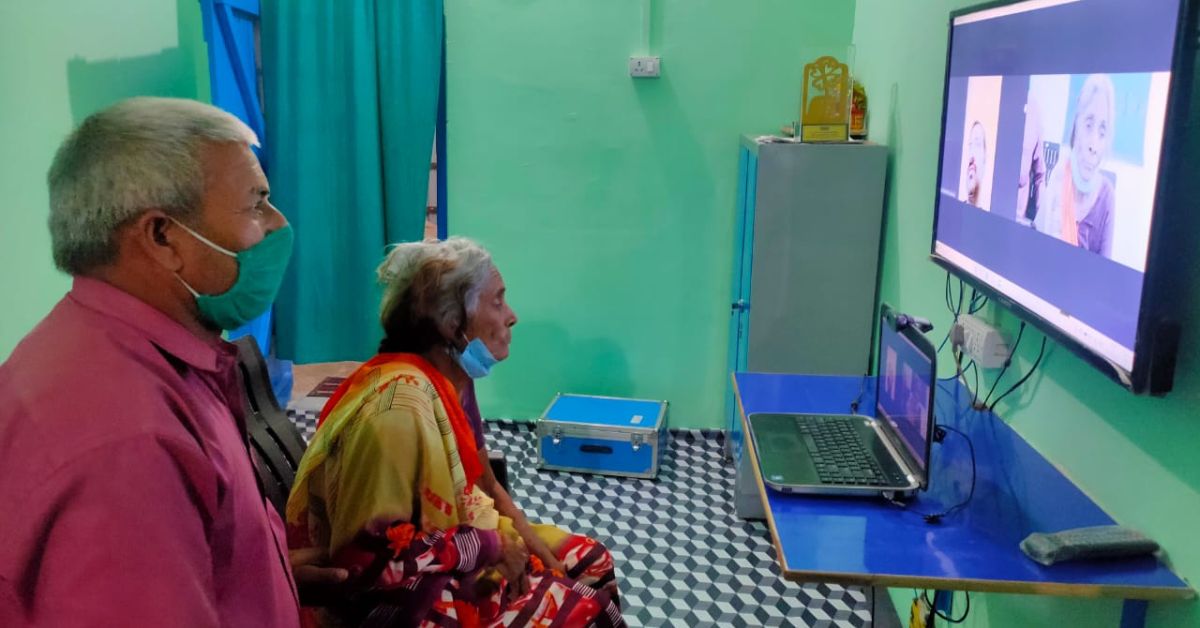
Ten minutes after a patient walks into these centres, their pulse rate, blood glucose, and blood pressure are taken. A doctor joins the call and understands the patient’s history and symptoms. He then gives them a prescription, which is preferably explained in the patient’s native language.
“The whole process takes about 35 minutes. We get cases of diabetes, malaria and dengue, gynaecological and neurological disorder issues, and even cancer,” he says.
Patients who cannot be treated by telemedicine are suggested hospitals in cities for physical examination. Sandeep says to ensure minimal financial burden on patients, he connects them through various government-run schemes.
“We ensure that their treatment does not stop because of financial constraints. In secondary and tertiary care cases, we handhold our patients from day one till they are treated,” he adds.
For instance, DigiSwasthya came to the rescue of 22-year-old Manisha Kumari, a resident of a village in Bihar’s Muzaffarpur, who was diagnosed with bone cancer in her knee in 2021. “We went to a Varanasi hospital for treatment. But the doctor said that my leg needs to be removed. I looked at my mother and I told her that I do not want to lead a life such that,” she tells The Better India.
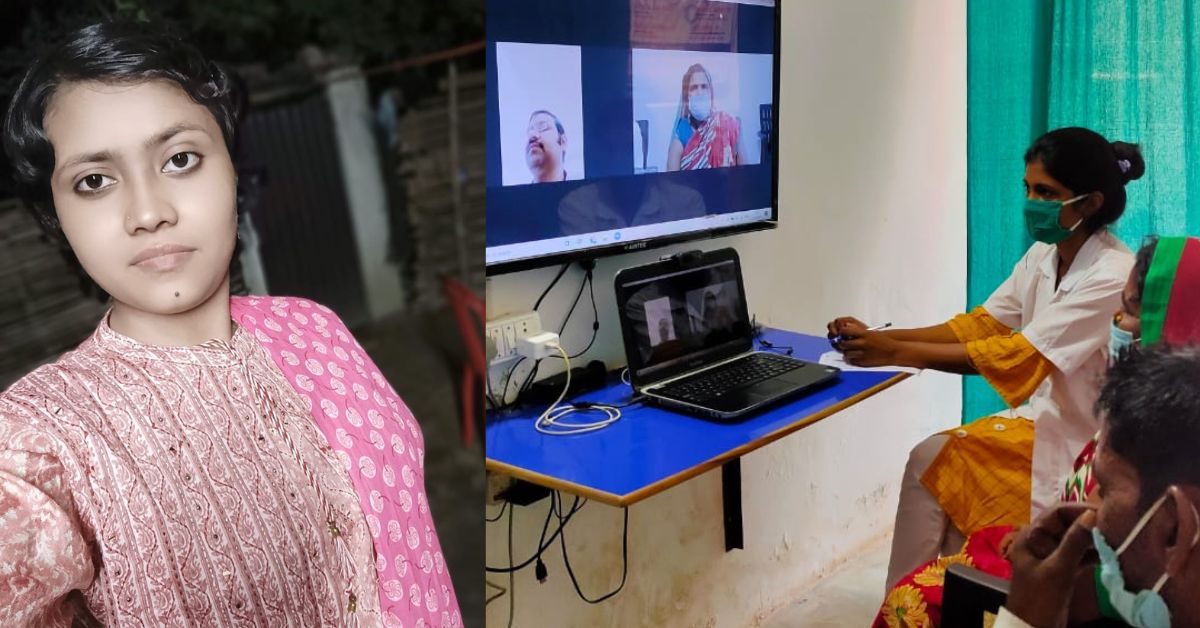
Here, she met Sandeep’s father who advised her to take teleconsultation from a Mumbai doctor. “The very next day of teleconsultation in February 2022, we went to Mumbai. And after a physical examination, the doctor said I can be cured without the need of removing leg,” she says.
“Later, we got to know that the Varanasi doctor had said so because he did not have sufficient equipment needed for the surgery; therefore, he had advised for removal. If it were not for DigiSwasthya and Sandeep bhaiya I would have lost my leg,” adds Manisha.
“It is with this purpose that I started the non-profit,” says Sandeep. If you found our stories insightful, informative, or even just enjoyable, we invite you to consider making a voluntary payment to support the work we do at The Better India. Your contribution helps us continue producing quality content that educates, inspires, and drives positive change. Choose one of the payment options below for your contribution- By paying for the stories you value, you directly contribute to sustaining our efforts focused on making a difference in the world. Together, let’s ensure that impactful stories continue to be told and shared, enriching lives and communities alike. Thank you for your support. Here are some frequently asked questions you might find helpful to know why you are contributing?

He adds, “Today, we are able to ensure healthcare for so many rural citizens. To be able to ensure that they do not go through the similar pain I had been forced to comes with a great satisfaction that cannot be expressed in words. In future, I wish to open such centres in each district and block across the country.”
Edited by Pranita Bhat; All images courtesy: DigiSwasthya
This story made me
-
97
-
121
-
89
-
167




